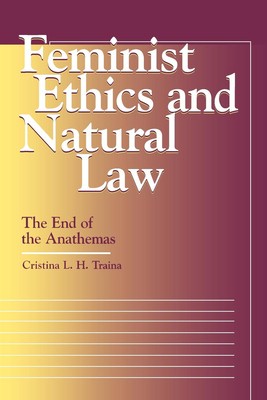
- We will send in 10–14 business days.
- Author: Cristina L H Traina
- Publisher: Georgetown University Press
- ISBN-10: 0878407278
- ISBN-13: 9780878407279
- Format: 15.4 x 22.9 x 2.3 cm, softcover
- Language: English
- SAVE -10% with code: EXTRA
Reviews
Description
Heated debates over such issues as abortiion, contraception, ordination, and Church heirarchy suggest that feminist and natural law ethics are diametrically opposed. Cristina L. H. Traina now reexamines both Roman Catholic natural law tradition and Anglo-American feminist ethics and reconciles the two positions by showing how some of their aims and assumptions complement one another. After carefully scrutinizing Aquinas's moral theology and analyzing trends in both contemporary feminist ethics and twentieth-century Roman Catholic theology, Traina shows that a truly Thomistic natural law ethic provides a much needed holistic foundation for contemporary feminist ethics. She proposes an innovative union of two supposedly antagonistic schools of thought, a new feminist natural law that would yeild more comprehensive moral analysis than either existing tradition alone.
EXTRA 10 % discount with code: EXTRA
The promotion ends in 18d.12:39:07
The discount code is valid when purchasing from 10 €. Discounts do not stack.
- Author: Cristina L H Traina
- Publisher: Georgetown University Press
- ISBN-10: 0878407278
- ISBN-13: 9780878407279
- Format: 15.4 x 22.9 x 2.3 cm, softcover
- Language: English English
Heated debates over such issues as abortiion, contraception, ordination, and Church heirarchy suggest that feminist and natural law ethics are diametrically opposed. Cristina L. H. Traina now reexamines both Roman Catholic natural law tradition and Anglo-American feminist ethics and reconciles the two positions by showing how some of their aims and assumptions complement one another. After carefully scrutinizing Aquinas's moral theology and analyzing trends in both contemporary feminist ethics and twentieth-century Roman Catholic theology, Traina shows that a truly Thomistic natural law ethic provides a much needed holistic foundation for contemporary feminist ethics. She proposes an innovative union of two supposedly antagonistic schools of thought, a new feminist natural law that would yeild more comprehensive moral analysis than either existing tradition alone.


Reviews